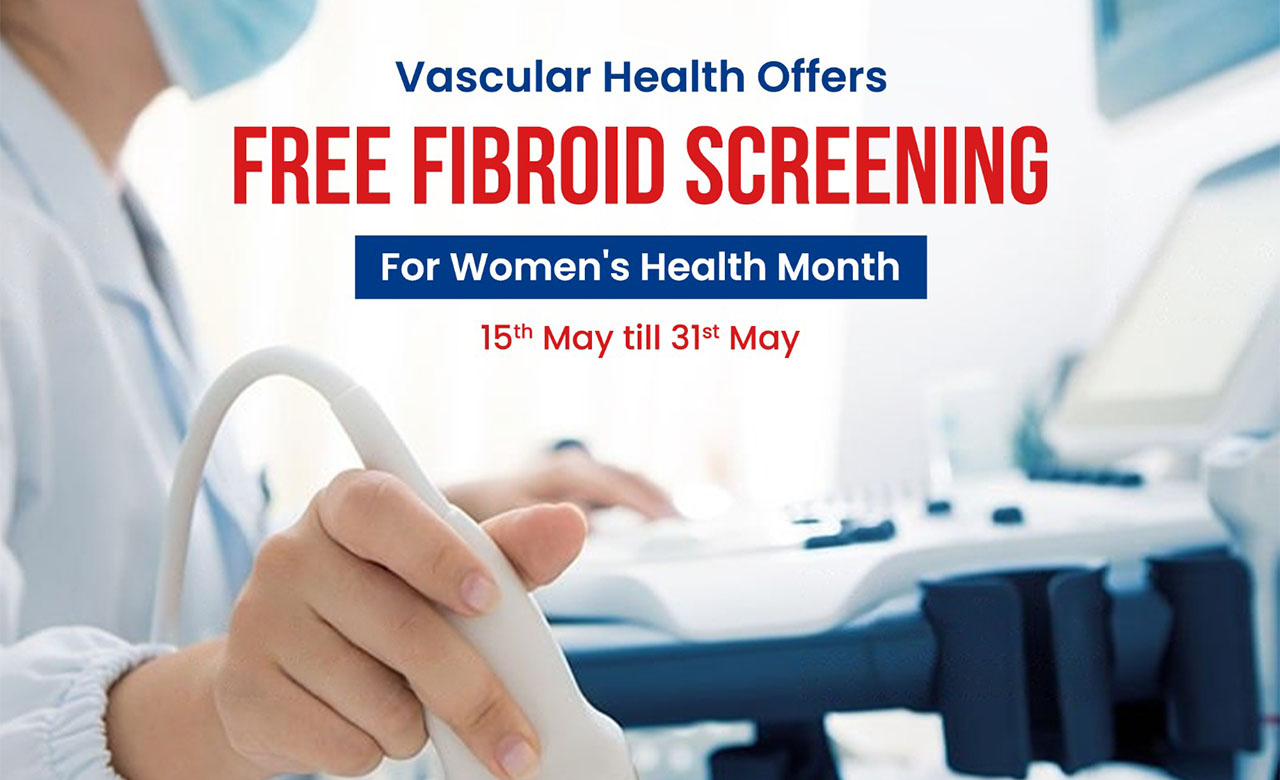May is recognized as Women’s Health Month by the National Cervical Cancer Coalition (NCCC) and Vascular Health acknowledges that. Vascular Health has taken the initiative of offering free screening for Women’s health month. Fibroids are a prevalent condition among females. It is almost always harmless but cannot be ignored. Fibroids can lead to several issues and complications that may lead to problems related to reproduction.
In May, Vascular Health will focus on spreading information and awareness for the early detection of these fibroids so they can be treated timely and effectively. We want to take an extra step to not only empower women but also to help them to control and manage their uterine and reproductive health. We will emphasize encouraging women to take care of themselves by improving their health.
Why Get Screened for Fibroids?
Fibroids are commonly known as tumors but are non-cancerous. These are capable of growing around, in, and on the uterus. About 75% of the women who are in their reproductive phase of life experience fibroids. Despite being benign, fibroids can cause problems that require treatment i.e. heavy menstrual bleeding, nausea, pelvic pain, infertility, and even pregnancy loss.
What is Fibroids Screening?
Fibroids can be suspected by physical examination and/or pelvic exam but fibroid screening will improve the accuracy by confirming the diagnosis. If we highlight the safest, most accurate, and most reliable screening method, we would mention ultrasound. This method is very common for the detection of fibroids and is painless. The entire procedure takes up to 15 minutes only. Other methods include MRI which uses a large magnet and radio waves for creating pictures in order to identify the fibroids and their placement, size, and number. Screening is extremely significant for the early detection of fibroids in order to provide treatment on time.
What are The Risk Factors?
The main cause of fibroids is yet to be found. However, studies have found several risk factors that cause/ increase the chance of developing fibroids. These factors can be mentioned as:
Age: As female ages, the risk of developing fibroids increases. It is most common between the ages of 30 to menopause. After this, the fibroids are very less likely to develop and grow.
Obesity: If a person is overweight, there is a very high risk of developing fibroids as a high BMI is a great risk factor.
Family History: A family history of fibroids increases the risk of their development. People with a family history of fibroids are three times more likely to develop and grow fibroids than an average normal person.
Ethnic Origin: Fibroids are more common among African and American women.
Facts Regarding Fibroids
- The most common tumor of the reproductive system is known to be uterine fibroids
- Women reaching the menopause are at a very high risk
- A variety of treatment options are available for fibroids. A practical alternate surgery is uterine fibroid embolization. This method will effectively preserve the uterus while removing and treating the fibroid.
Vascular Health takes pride in being the leading provider of minimally invasive fibroids treatment. Vascular Health dedicates its efforts to empowering women and raising awareness about how they should be taking care of themselves.




